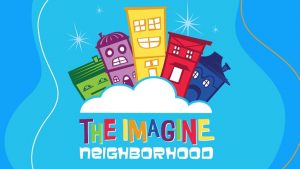
Voices helps Atomic Productions source foreign language voice over talent.

Committee for Children uses Voices to find their dream cast of characters for a scripted podcast.

Even on our best of days, we could all stand to benefit from more freely expressing ourselves, being more empathetic, and striving to get along with one another better. Committee for Children, a Seattle-based nonprofit that has spent the past 40-some years spearheading a number of initiatives to support and educate children, developed an entire curriculum built upon their belief in the importance of social-emotional learning (SEL). Their Second Step Program enriches the lives of millions of children around their world by encouraging them to “grow kinder” every year, and in 2020 they created an original children’s podcast to further propel that mission.
Meet Scotty Iseri, a senior product manager at Committee for Children. After sitting with the idea for quite some time, Scotty pitched the idea for a podcast based upon Committee for Children’s innovative Second Step curriculum. The show would use the intimate, engaging power of audio storytelling to encourage children and parents to openly discuss their feelings and grow into healthier, kinder communicators. The podcast would be titled The Imagine Neighborhood.
Iseri turned to Voices to track down his dream cast of professional and diverse voice actors to bring the characters of The Imagine Neighborhood to life. As he and his team were preparing for the grand premiere of the podcast’s inaugural season in March 2020, nobody could have foreseen the enormous impact the show would have on its listeners.
All of the voice talent featured on The Imagine Neighborhood are sourced directly from Voices. Each episode of the podcast showcases a range of voice actors playing original characters whose antics are equally hilarious and heartwarming for kids and grown-ups alike. (‘Macho Supreme’ is the moniker of one such character who has caught on and evolved into something of a catchphrase among families.) When the first season launched, listeners were most likely to encounter just one lead voice actor per episode. However, Iseri was shortly able to scale-up and introduce multiple characters within the same episodes, using the platform to cast both supporting and leading roles.
One of Iseri’s favorite things about using Voices is the ease with which he can share auditions to get input from every member of his team.
Iseri was also appreciative of the fact that Voices job postings are vetted, so that he could count on a second set of eyes reviewing every one of his casting calls. “We’ve had the experience of putting up a job that maybe wasn’t as well-defined as it could be, or was perhaps missing a script file,” Iseri says. “It was great to have the team at Voices let us know and catch it before the posting went live.”
For each job Committee for Children posts on Voices, they typically receive a few dozen auditions. Once all of the auditions have been evaluated and the perfect actor for the part has been selected, Iseri reports that his team received the completed audio files briskly—normally within a day.
“We have yet to strike out on Voices,” he says.
The first season of The Imagine Neighborhood was originally scheduled to run for ten episodes. And while there’s no such thing as a surplus of resources that simultaneously entertain and educate children, the podcast was released at a time when it could never be needed more. In March of 2020, the reverberations of the COVID-19 pandemic were beginning to be felt worldwide. Schools shut down, children were sent home, and millions of educators were forced to transition to remote teaching methods. Both parents and children were suddenly faced with the pressures of living under lockdown—a stress that was frequently exacerbated by turning on the TV or going online.
After being unexpectedly flung into an era of uncertainty, several educators began to circulate The Imagine Neighborhood to their students and incorporate its themes into their curricula. Parents started to use the podcast as a screen-free way to entertain their children and alleviate some of their worries. Even an unexpected target audience—adults without children—reported tuning into the podcast because it made them feel better in the face of so much troubling news.
In the trying times brought on by a global pandemic, The Imagine Neighborhood was able to serve as a reminder for all of its listeners to calm down, be easier on themselves, and treat others in their life with kindness.
After the glowing reception of the first season of The Imagine Neighborhood, Iseri was able to double the number of episodes. The turnaround time for a full episode of the show was roughly ten days, and after social distancing orders were implemented, he and his team began to churn out some episodes in under a week. They were also able to produce one episode in just 72 hours: a special segment that addressed the Black Lives Matter movement.
For the second season of The Imagine Neighborhood, the team doubled down on their workload from the first season and produced 16 new episodes. Iseri and Committee for Children are also deliberating ways that they can further support parents, offer live events via video chat platforms, and even expand their offerings into new languages.


Voices helps Atomic Productions source foreign language voice over talent.


David Studio Columbia saves time by finding their international voices on Voices.


Voices organized a live recording session for NBC10 Philadelphia to get the sound they needed.